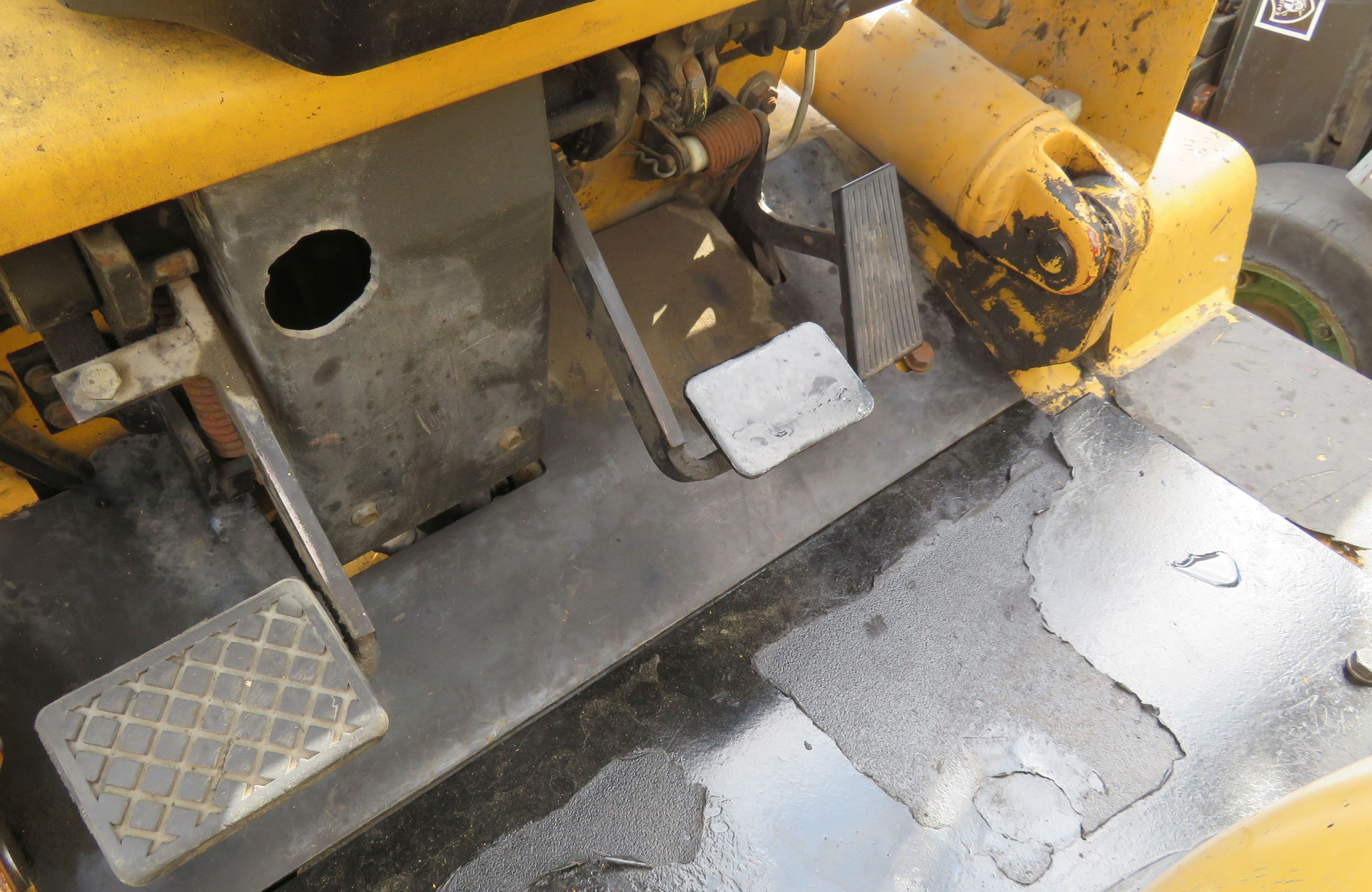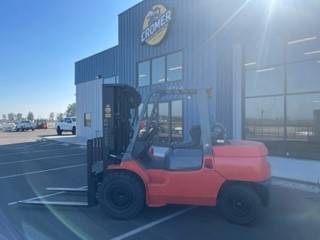8 Overlooked Forklift Parts That Can Break on You
We polled our Service teams on customer service calls from last year. Several of them reported repairs on "overlooked parts," like the parts we noted in a 2019 article. In response, we've expanded the original article for this month's newsletter. You'll find it below!
You already know to watch out for worn-out tires, bent forks, and other damaged components on your forklifts. However, when was the last time you checked the brake pedals? The seat belts?
Forklifts contain many parts. Some of which you may not think about. Until they break, that is.
Some of these overlooked parts can trigger a serious accident if they break suddenly on the floor. That's why we have to keep an eye out for signs of wear—anywhere!
In this issue we're listing out 8 of these overlooked parts, talking about how these parts can wear down, and what can happen if they break.

Brake Pedals
All brakes wear out. That’s no surprise. I'm not talking about the brakes themselves, but the brake pedal in the forklift cab.
These pads are rubber. When the rubber's new, it's easy to control the forklift's brake. When the rubber wears down from months of regular use, an operator's shoe can slip off the pedal.
Slippage can cause a sudden acceleration—right into a rack. Or a co-worker.
Forklift Horn
I've been to customer sites where operators use their forklifts' horns all the time. Others don't use them at all.
Either way, the horn serves a good purpose: it alerts everyone to where the forklift's going. Critical for worker safety, on and off the forklift.
Until the horn fails.
You won't know the horn's broken until you try it. If that happens when an operator sees a worker in their path, not paying attention? You instantly have a crisis-in-the-making.
Hoses
Hydraulic hoses can crack at the ends, springing leaks. Normally you'd notice a leak fast, from the trail left on the shop floor! However, older hoses can also split in the middle, creating a very thin leak. This will take a while to detect…but in the meantime, it decreases pressure in the engine, causing slowdowns or running rough.
Seat Belts
The first time someone sees fraying on a seat belt, they tend to shrug it off since "it hasn't snapped yet." True, but what happens if you hit something? The seat belt can snap in a second, sending you hurtling forward in the cab – or out of it!
Spark Plugs
A forklift's spark plugs fire all the time. Eventually you'll get a misfire. In a modern forklift engine, misfires don't automatically spell disaster. Just an occasional issue starting the forklift up. However, over time, one misfiring spark plug can seriously damage the forklift's engine.
Forklift Chains Affecting Forks
Over time, forklift chains will stretch out from use. They can also wear at the pins. Eventually this lengthens the chain out too far. Which causes the forks to drag on the ground, wearing down the forklift heels.
Due to everyday work noise, you may not see or hear the dragging. You'll eventually feel it though—when you end up with ruined forks and a dead chain!
This is the most preventable break on the list here. Adjusting your forklift chains during maintenance prolongs their life. If they've stretched too far, it's time to change the chain. Before it takes the forks out with it.
Emergency Brake
Like your car, forklifts have an emergency brake. You never think about it until you need it.
I've been in a forklift with a failed emergency brake. I tried the brake handle - and it pulled completely out of the socket. Part of the handle, out of operator view, had snapped at some point. I accidentally revealed the break when I pulled the handle.
Lucky for me, the forklift was off. If that happens when it's running, you're instantly in a collision situation!
Forklift Keys
A key's just a piece of metal. No big deal if it breaks, right? You must have a duplicate somewhere...
Think about this though...what happens if the key breaks off in the forklift keyhole? The entire forklift's rendered useless. It only takes 1 second.
How to Watch Those Overlooked Forklift Parts
Of these parts, the only one NOT designed to last the life of the forklift is the chain. Let's face it…sometimes things just wear out. That's why we do forklift maintenance in the first place.
The same maintenance can spot when certain parts have worn down. All we have to do is remember to keep an eye out.
- Set a visual inspection schedule, and keep it up. Make it a thorough one—include the forklift keys, seat belts, and the entire brake system in inspections.
- Stay on top of forklift maintenance. Regular maintenance will replace some of these components anyway (e.g. the chain).
- All of these parts show up in Cromer forklift maintenance inspections & replacements.
- All of these parts show up in Cromer forklift maintenance inspections & replacements.
- Remind all workers that you appreciate their input on forklift operation. If Carl checks in for his shift and finds his forklift takes three tries to start, he should report it at once. Could just be a cold day...or something's wrong.
Until next month!
Marshall Cromer, The Forklift Boss
Cromer Material Handling
Deal of the Month
High-Capacity 2012 LPG Toyota – $56,900
For 2022's first Deal of the Month, we have a 2012 Toyota 7FGU45. This is a 4-wheel sit-down LPG lift truck, with new tires on it.

The 7FGU45 is a big hauler. It has a max 10,000# lift capacity and a three-stage mast, making it a sturdy, hard-working truck indoors and out. This model has 4,625 hours on it, and has a new paint job in addition to the standard Cromer tune-up.
Pick up this high-capacity Toyota forklift for only $56,900. We only have the one, so call today!
To pick up, call Cromer at 800.974.5438 and ask for the January Deal of the Month.


